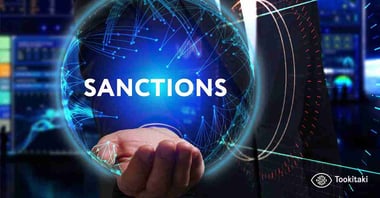The United Nations is an international organisation devoted to promote global peace and security as well as long-term economic growth. In order to achieve these goals, the UN seeks to combat financial crimes such as money laundering and terrorist financing by imposing sanctions on the nations, businesses, and persons involved.
What are UN Sanctions?
United Nations (UN) sanctions are measures that the UN Security Council imposes to maintain or restore international peace and security. These sanctions aim to compel a change in behaviour by a country or a group that threatens peace. The measures can include travel bans, asset freezes, arms embargoes, and other restrictions.
Sanctions serve several purposes:
- Preventing conflicts: By cutting off resources, the UN can stop aggressive actions before they escalate.
- Protecting human rights: Sanctions can target regimes that violate human rights, pressuring them to change.
- Combating terrorism: The UN can use sanctions to disrupt the funding and operations of terrorist groups.
Importance of UN Sanctions
UN sanctions play a crucial role in international relations. They offer a non-military method to influence behavior and enforce international laws. Here are some key reasons why UN sanctions are important:
- Global Security: Sanctions help prevent the spread of weapons of mass destruction and other military threats.
- Humanitarian Impact: Sanctions can protect populations from oppressive regimes and human rights abuses.
- Economic Influence: By restricting trade and financial transactions, sanctions can pressure governments and groups to comply with international norms.
Sanctions require global cooperation to be effective. Countries must work together to enforce these measures and monitor compliance. Failure to do so can undermine the effectiveness of the sanctions and allow the targeted entities to find loopholes.
Overview of the United Nations Security Council Consolidated List
What is the Consolidated List?
The United Nations Security Council Consolidated List is a comprehensive sanction list of all individuals, groups, undertakings, and entities subject to sanctions imposed by the UN Security Council. The list includes those involved in or supporting terrorism, proliferation of weapons of mass destruction, and other activities that threaten international peace and security.
The Consolidated List serves as a central reference point for:
- Member States: Countries use the list to implement and enforce sanctions.
- Financial Institutions: Banks and other financial entities use it to screen clients and transactions to ensure they do not engage with sanctioned parties.
- Businesses: Companies use the list to avoid doing business with sanctioned individuals and entities, ensuring compliance with international laws.
How the List is Compiled
The process of compiling the Consolidated List involves several steps:
- Identification: The UN Security Council identifies individuals and entities that pose a threat to international peace and security.
- Proposal: Member States can propose additions to the list. These proposals must be supported by evidence and relevant information.
- Approval: The Security Council reviews the proposals. Once approved, the names are added to the Consolidated List.
- Regular Updates: The list is updated regularly to include new sanctions and remove individuals or entities who no longer pose a threat.
The compilation of the list is a meticulous process that involves input from various international bodies and member states. This ensures that the list is accurate and comprehensive, reflecting the latest developments in global security.
The UN makes the Consolidated List publicly available, providing a valuable resource for governments, financial institutions, and businesses worldwide. By consulting the list, these entities can ensure they remain compliant with international sanctions and contribute to global security efforts.
Key Elements of the UN Sanctions List
Types of Sanctions
The UN imposes different types of sanctions depending on the nature of the threat. These sanctions can be broadly categorized into several types:
-
Asset Freezes: This type of sanction prohibits the transfer or disposal of funds and other financial assets belonging to designated individuals or entities. The aim is to cut off access to financial resources that could be used to support illegal activities.
-
Travel Bans: Travel bans restrict the movement of designated individuals. Those on the list are prohibited from entering or transiting through member states' territories. This measure helps to limit the mobility of individuals who pose a threat to international peace and security.
-
Arms Embargoes: Arms embargoes prevent the sale, supply, or transfer of arms and related materials to designated individuals, groups, or countries. This type of sanction is crucial in reducing the availability of weapons that could be used to fuel conflicts or support terrorism.
-
Trade Restrictions: These sanctions can include bans on the import or export of specific goods, commodities, or services. Trade restrictions aim to weaken the economic strength of the targeted entities and compel compliance with international laws.
-
Diplomatic Sanctions: Diplomatic sanctions involve the reduction or severance of diplomatic ties with the targeted entities or countries. This can include the closure of embassies and the expulsion of diplomats.
Entities and Individuals Included
The UN Sanctions List includes a variety of entities and individuals who are deemed a threat to international peace and security. These can be grouped into several categories:
-
Terrorist Organizations and Individuals: Groups and persons involved in planning, financing, or executing terrorist acts are included on the list. This helps to disrupt their activities and prevent future attacks.
-
Regimes and Political Leaders: Leaders and members of regimes responsible for gross human rights violations, acts of aggression, or other breaches of international law can be listed. This serves to isolate these individuals and reduce their ability to operate freely.
-
Companies and Businesses: Businesses that engage in activities such as the proliferation of weapons of mass destruction or that provide financial support to terrorist organizations can be sanctioned. This measure cuts off their ability to conduct business and limits their financial resources.
-
Financial Networks: Networks that facilitate money laundering, terrorist financing, or other illegal financial activities are targeted. Sanctions against these networks aim to dismantle the financial infrastructure supporting illegal activities.
List of Countries Under UN Sanctions
The United Nations imposes sanctions on countries involved in activities that threaten international peace and security. These sanctions aim to pressure these nations to change their behaviors and comply with international laws. Here is a comprehensive list of some of the countries currently under UN sanctions:
- North Korea: Subject to extensive sanctions due to its nuclear weapons program. These include arms embargoes, asset freezes, travel bans, and trade restrictions.
- Iran: Sanctions focus on preventing the proliferation of nuclear weapons and include arms embargoes and restrictions on financial transactions.
- Syria: Sanctions are in place due to the ongoing civil war and human rights violations, including asset freezes and travel bans against key figures.
- Libya: Initially imposed due to the civil conflict, sanctions include arms embargoes, asset freezes, and travel bans.
- Somalia: Sanctions target armed groups and include arms embargoes and restrictions on financial transactions to combat terrorism and piracy.
- South Sudan: Sanctions focus on resolving the civil conflict and include arms embargoes and travel bans.
- Yemen: Due to the civil war and humanitarian crisis, sanctions include arms embargoes and asset freezes against individuals and groups.
Notable Cases and Examples
-
North Korea: The UN has imposed sanctions on North Korea since 2006, with measures aimed at halting its nuclear weapons program. These sanctions include prohibitions on exporting luxury goods, restrictions on financial transactions, and bans on importing fuel and industrial machinery. Despite these sanctions, North Korea continues to advance its nuclear capabilities, making it one of the most sanctioned countries globally.
-
Iran: The UN has imposed sanctions on Iran to prevent the development of nuclear weapons. These measures include restrictions on nuclear-related materials and technologies, as well as bans on arms sales. The 2015 Joint Comprehensive Plan of Action (JCPOA) led to the lifting of some sanctions, but many were reinstated in 2018 after the U.S. withdrawal from the agreement.
-
Libya: Sanctions on Libya were initially imposed in 2011 during the civil war. These included an arms embargo and asset freezes against the Gaddafi regime. Following the regime's collapse, sanctions have continued to target armed groups and individuals obstructing peace and stability in the country.
-
Somalia: The UN has imposed sanctions on Somalia to combat terrorism, piracy, and the ongoing civil conflict. These measures include an arms embargo and restrictions on financial transactions to limit the resources available to terrorist groups like Al-Shabaab.
The Impact of UN Sanctions on Global Trade and Security
UN sanctions significantly affect the economies and political landscapes of targeted nations. Here are some key effects:
-
Economic Downturn: Sanctions often lead to severe economic challenges. Restricted access to international markets can result in shortages of essential goods, inflation, and reduced foreign investment. For instance, North Korea faces chronic food shortages partly due to international sanctions.
-
Isolation: Sanctions isolate countries diplomatically and economically. This isolation can pressure governments to comply with international demands, but it can also entrench regimes by rallying domestic support against perceived external threats. Iran's sanctions have led to both economic hardship and a rallying of nationalist sentiments.
-
Humanitarian Impact: Sanctions can have unintended humanitarian consequences, affecting the civilian population more than the targeted regime. For example, sanctions on Iraq in the 1990s led to significant suffering among civilians, prompting debates about the balance between sanctions and humanitarian needs.
-
Political Pressure: Sanctions create internal and external political pressure. Internally, they can weaken the targeted government by straining its resources and reducing its ability to govern effectively. Externally, they signal international disapproval and can lead to broader geopolitical isolation.
Implications for International Relations
UN sanctions also have broad implications for international relations:
-
Diplomatic Leverage: Sanctions serve as a tool for diplomatic leverage, allowing the international community to address security threats without resorting to military action. This approach can open channels for negotiation and conflict resolution.
-
Global Security: By targeting entities involved in terrorism, nuclear proliferation, and human rights abuses, sanctions help enhance global security. They disrupt financial networks and restrict access to materials that could be used for illicit activities.
-
Economic Disruption: Sanctions can disrupt global trade, affecting countries and businesses worldwide. Companies must ensure compliance with sanctions to avoid legal penalties, which can complicate international business operations. For example, the sanctions on Russia have had significant implications for global energy markets and supply chains.
-
Policy Coordination: Effective sanctions require coordinated efforts among UN member states. This coordination strengthens international norms and reinforces collective action against common threats. However, differing national interests can complicate consensus-building and enforcement.
How to Stay Updated with the UN Sanctions List
Accessing the Latest Information
Keeping up with the latest updates to the UN Sanctions List is crucial for compliance and risk management. Here are some ways to access the most current information:
-
United Nations Website: The UN maintains an updated version of the Consolidated List on its official website. This list includes all individuals, groups, and entities subject to sanctions, along with detailed information about each entry. Regularly visiting the UN's sanctions page ensures you have the latest information.
-
Subscription Services: Many organizations offer subscription services that provide updates and alerts about changes to the UN Sanctions List. These services can include email notifications, newsletters, and access to comprehensive databases that track sanctions globally.
-
Government Agencies: National government agencies, such as the Office of Foreign Assets Control (OFAC) in the United States, provide resources and updates about UN sanctions. These agencies often have online portals and tools to help businesses and financial institutions comply with sanctions.
-
Industry Associations: Joining industry associations and participating in their events can help you stay informed about sanctions. These associations often provide resources, training, and networking opportunities to help members navigate complex compliance requirements.
Tools and Resources for Monitoring Sanctions
To effectively monitor and comply with UN sanctions, organizations can leverage various tools and resources:
-
Sanctions Screening Software: Advanced software solutions can automatically screen transactions, customers, and business partners against the UN Sanctions List. These tools use artificial intelligence and machine learning to identify and flag potential matches, reducing the risk of human error and increasing efficiency.
-
Compliance Platforms: Comprehensive compliance platforms offer integrated solutions for managing sanctions, anti-money laundering (AML), and other regulatory requirements. These platforms provide real-time updates, risk assessments, and reporting capabilities to ensure full compliance with international sanctions.
-
Training and Education: Regular training and education programs for employees are essential for effective sanctions compliance. These programs should cover the latest regulations, best practices for sanctions screening, and how to use compliance tools effectively.
-
Consulting Services: Engaging with consulting firms that specialize in sanctions compliance can provide expert guidance and support. These firms can help assess your organization's risk, develop compliance strategies, and ensure that your processes align with international standards.
The Role of Compliance in Managing Sanctions Risks
Effective compliance is crucial in managing the risks associated with UN sanctions. Organizations must implement robust systems and processes to ensure they do not engage in prohibited transactions or business with sanctioned entities. Key components of a strong compliance program include:
-
Regular Screening: Continuously screen transactions, customers, and business partners against the latest UN Sanctions List. Use advanced software to automate and streamline this process, ensuring accuracy and efficiency.
-
Risk-Based Approach: Implement a risk-based approach to compliance. Focus resources on higher-risk areas, such as regions with known sanctions or sectors prone to abuse. Tailor your compliance measures to address these specific risks effectively.
-
Training and Awareness: Educate employees about the importance of sanctions compliance and how to recognize potential violations. Regular training sessions can keep staff informed about the latest regulations and best practices.
-
Audit and Review: Conduct regular audits and reviews of your compliance program to identify and address any gaps or weaknesses. Independent audits can provide an unbiased assessment and help demonstrate your commitment to compliance.
-
Documentation and Reporting: Maintain thorough records of all compliance activities, including screening results, risk assessments, and training sessions. Be prepared to report these activities to regulatory authorities if necessary.
At Tookitaki, we offer advanced solutions to help organizations navigate the complexities of UN sanctions compliance. Our FinCense platform leverages cutting-edge technology to ensure accurate and efficient sanctions screening and monitoring. Our Smart Screening software solution automates the screening process, ensuring your organization stays compliant with the latest UN sanctions.
Explore how Tookitaki's solutions can enhance your compliance program and protect your organization from the risks associated with sanctions. Contact us today to learn more and request a demo.
Anti-Financial Crime Compliance with Tookitaki?






